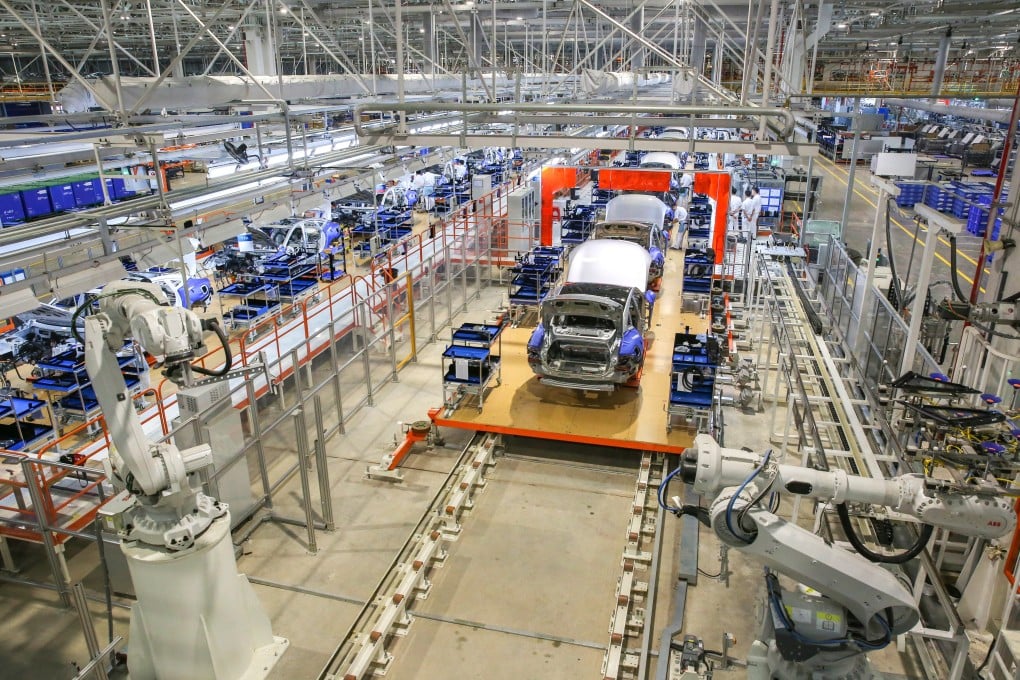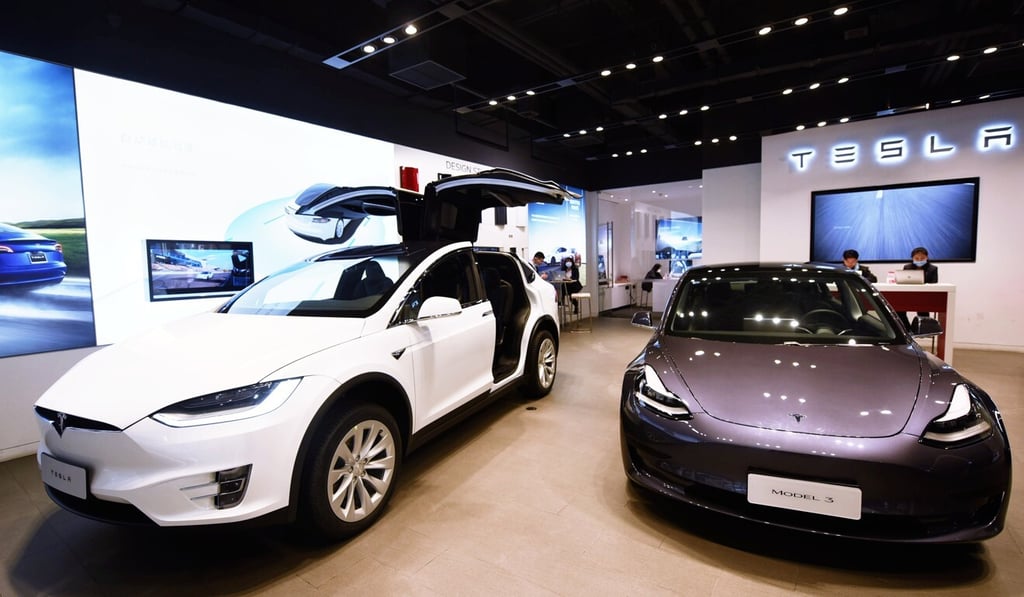Xpeng’s US$1.98 billion credit line from state-owned banks suggests China is throwing weight behind leading electric vehicle firms
- Company secures credit from Agricultural Bank of China, Bank of China, China Construction Bank, China Citic Bank and Guangzhou Rural Commercial Bank
- Expect more loans will be extended to top electric vehicle companies: industry observer

Guangdong-based Xpeng Motors has been granted a 12.8 billion yuan (US$1.98 billion) credit line by Chinese state-owned banks.
The company, one of three Chinese electric vehicle (EV) start-ups viewed as potential rivals to Tesla, said that it had secured credit from five lenders – Agricultural Bank of China (ABC), Bank of China (BOC), China Construction Bank (CCB), China Citic Bank and Guangzhou Rural Commercial Bank.
The credit line comes after Xpeng raised more than US$5 billion in pre-initial public offering (IPO) financing, an IPO and a follow-on offering in the second half of 2020. It suggests that the Chinese central as well as local governments are ramping up support for leading players in an industry where Beijing wants a front-runner position.
“The top domestic EV makers will be encouraged to spend more on the development of their own technologies,” said Wang Feng, chairman of Shanghai-based financial services group Ye Lang Capital. “I expect more loans will be extended to those top EV players after the 12.8 billion yuan credit facilities.”

Under Beijing’s “Made in China 2025” industrial master plan, EVs are one of the 10 significant sectors in which China seeks a front-running position worldwide. It aims to have several home-grown companies become global powerhouses with their own technological strengths.
Xpeng raised US$900 million in a pre-IPO deal before it netted US$1.7 billion in an IPO on the New York Stock Exchange in August last year. Last month, it completed a fundraising of about US$2.5 billion in a follow-on offering, the biggest of its kind by a mainland company listed in the US.